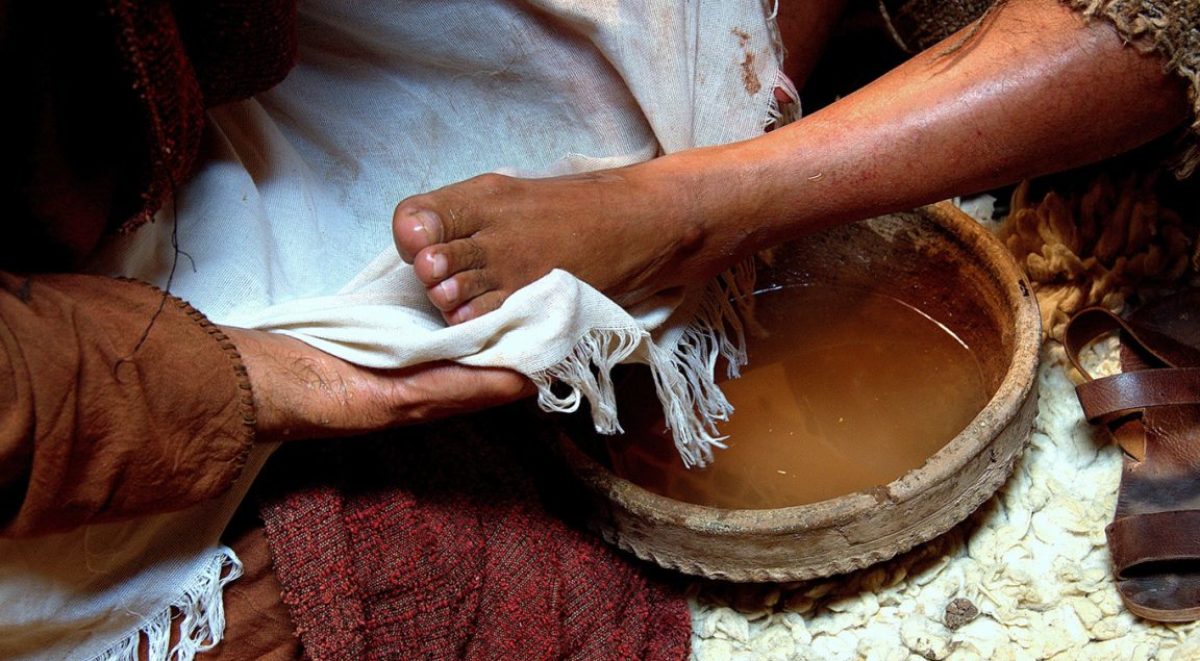The mucky jobs - service as eucharist.
Most of us would have seen a cardiac arrest on tv or in a movie. Let me tell you that it is a very sanitised version that you see. When I was a young medical student and then a young doctor in the hospital I went to my fair share of cardiac arrests - what I have never seen in those dramatised versions is the hierarchy that occurs when managing the situation. The rule was - the bottom of the pecking order got to do the mouth-to-mouth resuscitation. If you were a junior house surgeon that was your job unless there was a trainee intern or a medical student. There was a reason for that - it could be pretty unpleasant - to be graphic - we’re not just talking bad breath here but frequently vomit was involved.
I found myself thinking of this when I read the story of Jesus washing the disciples' feet - back in those days the same sort of rules applied for foot-washing as we used to apply to resuscitation - the bottom of the pecking order got to do the foot-washing - if you had a servant it would be the servant - if you had servants and slaves then the servant could heave a sigh of relief - it devolved to the slaves. If you had neither then the practice was to provide the guests with a basin of water and towel to wash their own feet. Hosts would NEVER wash the feet of their visitors. We can’t imagine today how unpleasant a task it must have been - back then they wore sandals, the most common form of transport was walking and the roads didn’t have road-cleaning machines washing and scrubbing the roads down. This was the messy smelly job that no-one wanted.
The myth prevails that Jesus was just a good man - one only has to read John’s gospel and one can see that Jesus was very self-aware of his special relationship with God and his mission. So this isn’t just a story of a very nice man doing something unexpected. John makes it clear just how deliberate this action of Jesus was. “Jesus knew that his hour had come to depart from this world and go to the Father.” Was Jesus' knowledge of his impending death supernatural or was he just reading the signs? (we don’t know)- there had been threats and plots against him throughout his ministry - it was working up to a climax in Jerusalem. If it was the night before you were to die what would be the most important thing for you to do? John repeats and expands on this context “Jesus, knowing that the Father had given all things into his hands, and that he had come from God and was going to God…” This heightens the urgency - time is running out - the pressure is on Jesus - how should he use these last hours. Perhaps a bit of self-care would be in order knowing that things are going downhill fast? Perhaps a conversation with those really important things he wants the disciples to remember when he has gone?
John adds two more elements of context here “Having loved his own who were in the world, he loved them to the end” - the love Jesus extended to his disciples and the presence of his betrayer at the table.
So, Jesus, knowing time was precious, how much he loved them (even his betrayer) made a very deliberate choice to spend his valuable time doing the dirtiest job no-one wanted to do. How long would it have taken to wash and dry the feet of at least 12 others? … John’s gospel doesn’t give an account of the Lord’s supper like the other gospels. (Although if you read John 6 the account of the feeding of the 5000 you can find loads of eucharistic references.) For John this is the critical story to tell about this night - this is the story never to be forgotten. This story is the model of the ministry of the community Jesus called together, the community of which we are part. The story has been told now for thousands of years. Actions speak louder than words - Jesus didn’t just talk about upending the way the world does things - he acted it. Jesus didn’t just say service was important - he served even when time was precious, even those who were to betray and deny him.
For John “do this in memory of me” was about service - Jesus spells it out - “you also should do as I have done to you” and later “love one another just as I have loved you”. Service pervades our eucharistic liturgy - we pray “that we, filled with the Spirits grace and power, may be renewed for the service of your kingdom”. Tonight on Maundy Thursday we remember the night Jesus washed his disciples' feet, but every Sunday as we celebrate Eucharist service is built into it. Every Eucharist is about foot-washing.
We who follow Jesus are not called to do things the way everyone else does them. We are called to be servants of others - each other, our neighbours, our enemies, our world.
Let us pray
Our feet resemble our lives—twisted, grubby, and embarrassing.
To let others see and touch us is difficult.
It is humiliating for us to accept the service of others.
Gentle Spirit of God, relieve our fears.
Open us to your cleansing grace.
Make us receptive to our neighbours’ humble efforts to serve us.
In serving and being served,
weave us together into a lowly towel
that you use to cleanse and care for your world. Amen


Comments
Post a Comment